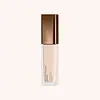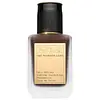What's inside
What's inside
 Key Ingredients
Key Ingredients

 Benefits
Benefits

 Concerns
Concerns

 Ingredients Side-by-side
Ingredients Side-by-side

Water
Skin ConditioningIsododecane
EmollientCaprylic/Capric Triglyceride
MaskingMica
Cosmetic ColorantDimethicone
EmollientButylene Glycol
HumectantTitanium Dioxide
Cosmetic ColorantEthylhexyl Methoxycinnamate
UV AbsorberPEG-30 Dipolyhydroxystearate
EmulsifyingDextrin Palmitate
EmulsifyingDisteardimonium Hectorite
StabilisingCetyl PEG/PPG-10/1 Dimethicone
EmulsifyingPolyglyceryl-4 Isostearate
EmulsifyingSodium Chloride
MaskingPhenoxyethanol
PreservativeHydrogenated Palm Kernel Glycerides
EmollientZinc Oxide
Cosmetic ColorantHexyl Laurate
EmollientDimethicone Crosspolymer
Emulsion StabilisingAlcohol
AntimicrobialTrisiloxane
Skin ConditioningPotassium Sorbate
PreservativeHydrogenated Styrene/Isoprene Copolymer
Caprylyl Methicone
Skin ConditioningEthylene Brassylate
MaskingHydrogenated Palm Glycerides
EmollientSilica
AbrasiveAluminum Hydroxide
EmollientPentaerythrityl Tetra-Di-T-Butyl Hydroxyhydrocinnamate
AntioxidantRubus Idaeus Leaf Cell Culture
Skin ConditioningTalc
AbrasiveCI 77491
Cosmetic ColorantCI 77492
Cosmetic ColorantCI 77499
Cosmetic ColorantWater, Isododecane, Caprylic/Capric Triglyceride, Mica, Dimethicone, Butylene Glycol, Titanium Dioxide, Ethylhexyl Methoxycinnamate, PEG-30 Dipolyhydroxystearate, Dextrin Palmitate, Disteardimonium Hectorite, Cetyl PEG/PPG-10/1 Dimethicone, Polyglyceryl-4 Isostearate, Sodium Chloride, Phenoxyethanol, Hydrogenated Palm Kernel Glycerides, Zinc Oxide, Hexyl Laurate, Dimethicone Crosspolymer, Alcohol, Trisiloxane, Potassium Sorbate, Hydrogenated Styrene/Isoprene Copolymer, Caprylyl Methicone, Ethylene Brassylate, Hydrogenated Palm Glycerides, Silica, Aluminum Hydroxide, Pentaerythrityl Tetra-Di-T-Butyl Hydroxyhydrocinnamate, Rubus Idaeus Leaf Cell Culture, Talc, CI 77491, CI 77492, CI 77499
Water
Skin ConditioningCyclopentasiloxane
EmollientIsododecane
EmollientAlcohol
AntimicrobialGlycerin
HumectantPhenyl Trimethicone
Skin ConditioningIpdi/Di-C12-13 Alkyl Tartrate/Bis-Hydroxyethoxypropyl Dimethicone Copolymer
Aluminum Starch Octenylsuccinate
AbsorbentCetyl PEG/PPG-10/1 Dimethicone
EmulsifyingPolyglyceryl-4 Isostearate
EmulsifyingDisteardimonium Hectorite
StabilisingSodium Chloride
MaskingAluminum Hydroxide
EmollientBenzimidazole Diamond Amidoethyl Urea Carbamoyl Propyl Polymethylsilsesquioxane
Cosmetic ColorantCaprylic/Capric Triglyceride
MaskingDi-C12-13 Alkyl Tartrate
EmollientDisodium Stearoyl Glutamate
CleansingHexyl Laurate
EmollientPentaerythrityl Tetra-Di-T-Butyl Hydroxyhydrocinnamate
AntioxidantRubus Idaeus Leaf Cell Culture
Skin ConditioningPotassium Sorbate
PreservativeSodium Dehydroacetate
PreservativeCI 77891
Cosmetic ColorantIron Oxides
Water, Cyclopentasiloxane, Isododecane, Alcohol, Glycerin, Phenyl Trimethicone, Ipdi/Di-C12-13 Alkyl Tartrate/Bis-Hydroxyethoxypropyl Dimethicone Copolymer, Aluminum Starch Octenylsuccinate, Cetyl PEG/PPG-10/1 Dimethicone, Polyglyceryl-4 Isostearate, Disteardimonium Hectorite, Sodium Chloride, Aluminum Hydroxide, Benzimidazole Diamond Amidoethyl Urea Carbamoyl Propyl Polymethylsilsesquioxane, Caprylic/Capric Triglyceride, Di-C12-13 Alkyl Tartrate, Disodium Stearoyl Glutamate, Hexyl Laurate, Pentaerythrityl Tetra-Di-T-Butyl Hydroxyhydrocinnamate, Rubus Idaeus Leaf Cell Culture, Potassium Sorbate, Sodium Dehydroacetate, CI 77891, Iron Oxides
Ingredients Explained
These ingredients are found in both products.
Ingredients higher up in an ingredient list are typically present in a larger amount.
Alcohol comes in many different forms. Different types of alcohol will have different effects on skin. This ingredient is usually an astringent alcohol.
These alcohols are drying on the skin. They may strip away your skin's natural oils and even damage your skin barrier. Astringent alcohols may also irritate skin.
Other types of astringent alcohols include:
According to the National Rosacea Society based in the US, you should be mindful of products with these alcohols in the top half of ingredients.
Any type of sanitizing product will have high amounts of alcohol to help kill bacteria and viruses.
Fatty alcohols come from plant oils such as coconut oil. These can help hydrate the skin and are non-irritating. Some fatty alcohols include cetyl and stearyl alcohol.
Learn more about AlcoholAluminum Hydroxide is a form of aluminum. It can be naturally found in nature as the mineral gibbsite. In cosmetics, Aluminum Hydroxide is used as a colorant, pH adjuster, and absorbent.
As a colorant, Aluminum Hydroxide may add opacity, or reduce the transparency. Aluminum hydroxide is contains both basic and acidic properties.
According to manufacturers, this ingredient is an emollient and humectant. This means it helps hydrate the skin.
In medicine, this ingredient is used to help relieve heartburn and help heal ulcers.
There is currently no credible scientific evidence linking aluminum hydroxide in cosmetics to increased cancer risk.
Major health organizations allow the use of aluminum hydroxide in personal care products and have not flagged it as a carcinogenic risk at typical usage levels.
Learn more about Aluminum HydroxideThis ingredient is an emollient, solvent, and texture enhancer. It is considered a skin-softener by helping the skin prevent moisture loss.
It helps thicken a product's formula and makes it easier to spread by dissolving clumping compounds.
Caprylic Triglyceride is made by combining glycerin with coconut oil, forming a clear liquid.
While there is an assumption Caprylic Triglyceride can clog pores due to it being derived from coconut oil, there is no research supporting this.
Learn more about Caprylic/Capric TriglycerideThis ingredient is a high molecular weight silicone. It has emulsifying and skin conditioning properties.
Disteardimonium Hectorite comes from the clay mineral named hectorite. It is used to add thickness to a product.
It can also help stabilize a product by helping to disperse other ingredients.
Hectorite is a rare, white clay mineral.
Learn more about Disteardimonium HectoriteHexyl Laurate isn't fungal acne safe.
Isododecane is a fragrance, emollient, and solvent.
As an emollient, it helps your skin stay soft and hydrated. Emollients help trap moisture into your skin.
Isododecane's role as a solvent makes it a great texture enhancer. It spreads smoothly on skin and does not leave a sticky feeling behind. Isododecane also helps prevent color transfer in makeup products.
Isododecane is not absorbed into skin.
Learn more about IsododecanePentaerythrityl Tetra-Di-T-Butyl Hydroxyhydrocinnamate (long name, huh?) is a synthetic antioxidant.
It is used to help stabilize other antioxidants or prevent the color from changing in a product.
As an antioxidant, it helps fight free-radical molecules. Free-radical molecules are capable of damaging our cells and other genetic material. Thus, antioxidants may reduce the signs of aging.
This ingredient is oil-soluble.
Learn more about Pentaerythrityl Tetra-Di-T-Butyl HydroxyhydrocinnamateThis ingredient is an emulsifer and stabilizer. It comes from isostearic acid and polyglycerin.
As an emulsifier, it helps blend oil and water to improve texture, spreadbility, and application.
Due to it being derived from isostearic acid, this ingredient may not be fungal acne safe.
Learn more about Polyglyceryl-4 IsostearatePotassium Sorbate is a preservative used to prevent yeast and mold in products. It is commonly found in both cosmetic and food products.
This ingredient comes from potassium salt derived from sorbic acid. Sorbic acid is a natural antibiotic and effective against fungus.
Both potassium sorbate and sorbic acid can be found in baked goods, cheeses, dried meats, dried fruit, ice cream, pickles, wine, yogurt, and more.
You'll often find this ingredient used with other preservatives.
Learn more about Potassium SorbateWe don't have a description for Rubus Idaeus Leaf Cell Culture yet.
Chances are, you eat sodium chloride every day. Sodium Chloride is also known as table salt.
This ingredient has many purposes in skincare: thickener, emulsifier, and exfoliator.
You'll most likely find this ingredient in cleansers where it is used to create a gel-like texture. As an emulsifier, it also prevents ingredients from separating.
There is much debate on whether this ingredient is comedogenic. The short answer - comedogenic ratings don't tell the whole story. Learn more about comegodenic ratings here.
The concensus about this ingredient causing acne seems to be divided. Research is needed to understand if this ingredient does cause acne.
Scrubs may use salt as the primary exfoliating ingredient.
Learn more about Sodium ChlorideWater. It's the most common cosmetic ingredient of all. You'll usually see it at the top of ingredient lists, meaning that it makes up the largest part of the product.
So why is it so popular? Water most often acts as a solvent - this means that it helps dissolve other ingredients into the formulation.
You'll also recognize water as that liquid we all need to stay alive. If you see this, drink a glass of water. Stay hydrated!
Learn more about Water